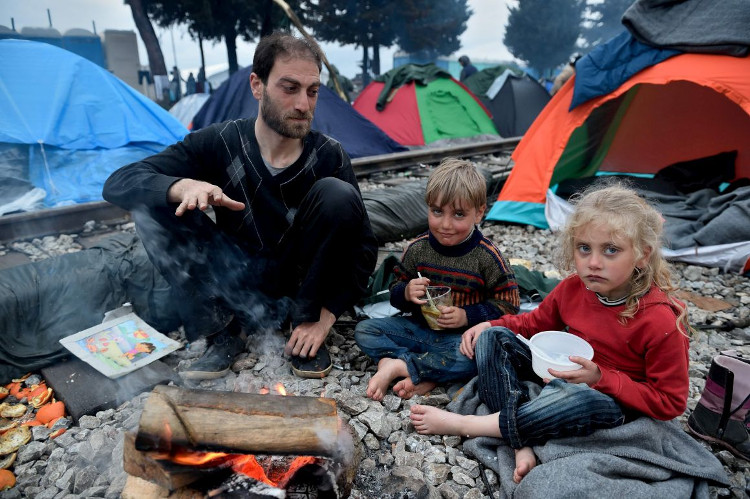Warning of migration risk massively when the temperature increased by 2 degrees Celsius
US scientists have just warned of the risk of population decline due to immigration in Mexico, Central America, Africa, India and other tropical regions due to climate change.
According to public policy professor Solomon Hsiang of the University of California-Berkeley and Applied Physics Professor Adam Sobel of Columbia University, when the average temperature of the Earth increases by 2 degrees Celsius, humans and animals and The vegetation will have to relocate hundreds of kilometers away from the current habitat.

Children migrate in temporary shelters.
In the new work published in Scientific Reports, Professor Sobel said that geophysical stress will increase the temperature , people tend to leave the tropics, even to the extent that they can move. completely evacuated from the Equator.
The two scientists estimate that with an average temperature rise of 2 degrees C, many communities in both coastal and continental areas near the Equator will have to migrate over 1,600km.
Cool climates are at risk of overloading when fictional models show that the population in these areas may increase to 300% from the present.
High population density also leads to a risk of epidemic outbreaks, resource conflicts, and many other complex evils.
- Need to remember sunny days: Certainly do not sit on the saddle
- The two countries have terrible temperature differences: nearly 100 degrees Celsius
- Shocking research: The smartest person at 22 degrees Celsius
- Warning for a heat wave over 40 degrees Celsius
- Earth temperature can increase by 6 degrees Celsius
- Temperatures in the Northern provinces are down to 14 degrees Celsius
- Central Vietnam can heat up to 40 degrees Celsius
- How will the body change when the temperature drops to 10 degrees Celsius?
- Hot earth 2 degrees Celsius will have worse consequences than heating up only 1.5 degrees Celsius, why?
- You used to cold 22 degrees Celsius
- Hot sunshine Hanoi peaked at 41 degrees C today
- August temperature is the fourth highest in history
 Is the magnetic North Pole shift dangerous to humanity?
Is the magnetic North Pole shift dangerous to humanity? Washington legalizes the recycling of human bodies into fertilizer
Washington legalizes the recycling of human bodies into fertilizer Lightning stone - the mysterious guest
Lightning stone - the mysterious guest Stunned by the mysterious sunset, strange appearance
Stunned by the mysterious sunset, strange appearance